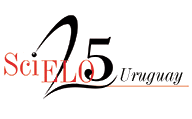Ecocritical Reflections on Fiction Written by Nobel Laureate Mario Vargas Llosa
DOI:
https://doi.org/10.25185/13.7Keywords:
Ecocriticism, Environment, Mario Vargas Llosa, Peruvian literature, The Dream of the Celt, The StorytellerAbstract
This article examines anthropocentric and ecocentric tendencies in two major works written by Mario Vargas Llosa, The Storyteller and The Dream of the Celt, to identify the value of those novels in ecocritical terms. I provide this analysis in the context of recent academic dialogue which notes an apparent contradictory relationship between the presentation of abuses of Amazonian people and their environment, and the portrayal of Westernized protagonists as their saviors in fiction written by Vargas Llosa. This essay provides a solution to this paradox and other apparent contradictions in his narratives and posits that even though the anthropocentric literary discourse concerning the environment has declined throughout the latter part of the twentieth century, in part, due to the rise of the environmental movement, this type of discourse has changed in Vargas Llosa’s literature, rejecting early twentieth century misconceptions of the natural world but holding onto technocentric neoliberal beliefs.
Downloads
References
Beattie, Mollie. “Environmentalism.” In The Book of Green Quotations, edited by James Daley, 43-54. New York: Dover Publications, 2009.
Booker, Keith. Vargas Llosa Among the Postmodernists. Gainesville: University Press of Florida, 1994.
Buell, Lawrence. The Environmental Imagination: Thoreau, Nature Writing, and the Formation of American Culture. Cambridge: Harvard University Press, 1995. DOI: https://doi.org/10.2307/j.ctv1nzfgsv
Buell, Lawrence. The Future of Environmental Criticism: Environmental Crisis and Literary Imagination. Oxford: Blackwell, 2005.
Castro-Klarén, Sara. “Mario Vargas Llosa: A Retrospective Look.” MLN 131, nº 2 (2016): 536-550. DOI: https://doi.org/10.1353/mln.2016.0021
Devall, Bill, and George Sessions. Deep Ecology: Living as if Nature Mattered. Salt Lake City: Gibbs M. Smith, 1985.
Foucault, Michel. The Order of Things. New York: Vintage Books, 1970.
Fox, Nicholas. Against the Machine: The Hidden Luddite Tradition in Literature, Art, and Individual Lives. Washington, DC: Island Press, 2002.
Hassan, Ihab. “Toward a Concept of Postmodernism.” In A Postmodern Reader, edited by Linda Hutcheon and Joseph Natoli, 273-286. Albany: State University of New York Press, 1993.
Hutcheon, Linda. “Historiographic Metafiction: Parody and the Intertextuality of
History.” In Intertextuality and Contemporary American Fiction, edited by
Patrick O'Donnell and Robert Con Davis, 3-32. Baltimore: Johns Hopkins University Press, 1989.
Hutcheon, Linda. The Politics of Postmodernism. New York: Routledge, 1989.
Kokotovic, Misha. “Mario Vargas Llosa Writes Of(f) the Native: Modernity and Cultural Heterogeneity in Peru.” Revista Canadiense de Estudios Hispánicos 25, nº 3
(2001): 445-467.
McGuire, John W. “The Postmodern Turn in Vargas Llosa: Historia de Mayta, El hablador, Lituma en los Andes.” Doctoral dissertation, University of California, 2000.
Oviedo, José M. Mario Vargas Llosa: la invención de una realidad. Seix Barral, 1982.
Policsek, Cecilia. “El forjamiento de ‘lo latinoamericano’ en moldes editoriales: sobre el caso rumano en el período 2004–2015.” Neophilologus 103 (2019): 83-97. DOI: https://doi.org/10.1007/s11061-018-9580-x
Prado, Benjamín. “El nuevo ocho mil de Vargas Llosa.” Cuadernos hispanoamericanos 725 (2010): 5-8.
Rogers, Charlotte. “Mario Vargas Llosa and the novela de la selva.” Bulletin of Spanish Studies 93, nº 6 (2016): 1043-1060. DOI: https://doi.org/10.1080/14753820.2016.1176299
Sá, Lúcia. “Perverse Tribute: Mario Vargas Llosa’s El hablador and its Machiguenga
Sources.” Journal of Iberian and Latin American Studies 4, nº 2 (1998): 145-164. DOI: https://doi.org/10.1080/13507499808569476
Saramago, Victoria. Fictional Environments, Volume 37: mimesis, deforestation, and development in Lain America, Northwestern UP, 2021. DOI: https://doi.org/10.2307/j.ctv18phht8
Sommer, Doris. “About-Face: The Talker Turns.” boundary 2 23, nº 1 (1996): 91-133. DOI: https://doi.org/10.2307/303578
Urroz, Eloy. “Karl Popper y Mario Vargas Llosa: ¿igualidad o libertad?” Revista de la Universidad de México 88 (2011): 31-40.
Vargas Llosa, Mario. “Breve discurso sobre la cultura.” Letras Libres 139 (2010): 48-55.
Vargas Llosa, Mario. The Dream of the Celt. Translated by Edith Grossman. New York: Farrar, Straus and Giroux, 2012.
Vargas Llosa, Mario. The Storyteller. Translated by Helen Lane. New York: Penguin Books, 1989.
Vallier, Kevin, “Neoliberalism.” In The Stanford Encyclopedia of Philosophy, edited by Edward N. Zalta, Summer 2021, https://plato.stanford.edu/archives/sum2021/entries/neoliberalism/.
Volek, Emil. “El hablador de Vargas Llosa. Del realismo mágico a la postmodernidad.” Cuadernos hispanoamericanos 509 (1992): 95-102.
Walford, Lynn M. A Matter of Life and Death: José María Arguedas, Mario Vargas Llosa, and the Postmodern Condition. Doctoral dissertation, Louisiana State University, 2000.
Williams, Raymond L. “Los niveles de la realidad, la función de lo racional y los demonios: El hablador y Lituma en los Andes.” Explicación de textos literarios 25 (1996-1997): 141-54.
Williams, Raymond L. The Postmodern Novel in Latin America: Politics, Culture, and the Crisis of Truth. New York: St. Martin's Press, 1996.
Williams, Raymond L. The Twentieth-Century Spanish American Novel. Austin: University of Texas Press, 2003.
Wiseman, David P. “Mario Vargas Llosa and the Politics of Literature.” Doctoral dissertation, Vanderbilt University, 2010.
Published
How to Cite
Issue
Section
License
Copyright (c) 2023 William Flores

This work is licensed under a Creative Commons Attribution 4.0 International License.





























 This work is under a
This work is under a 